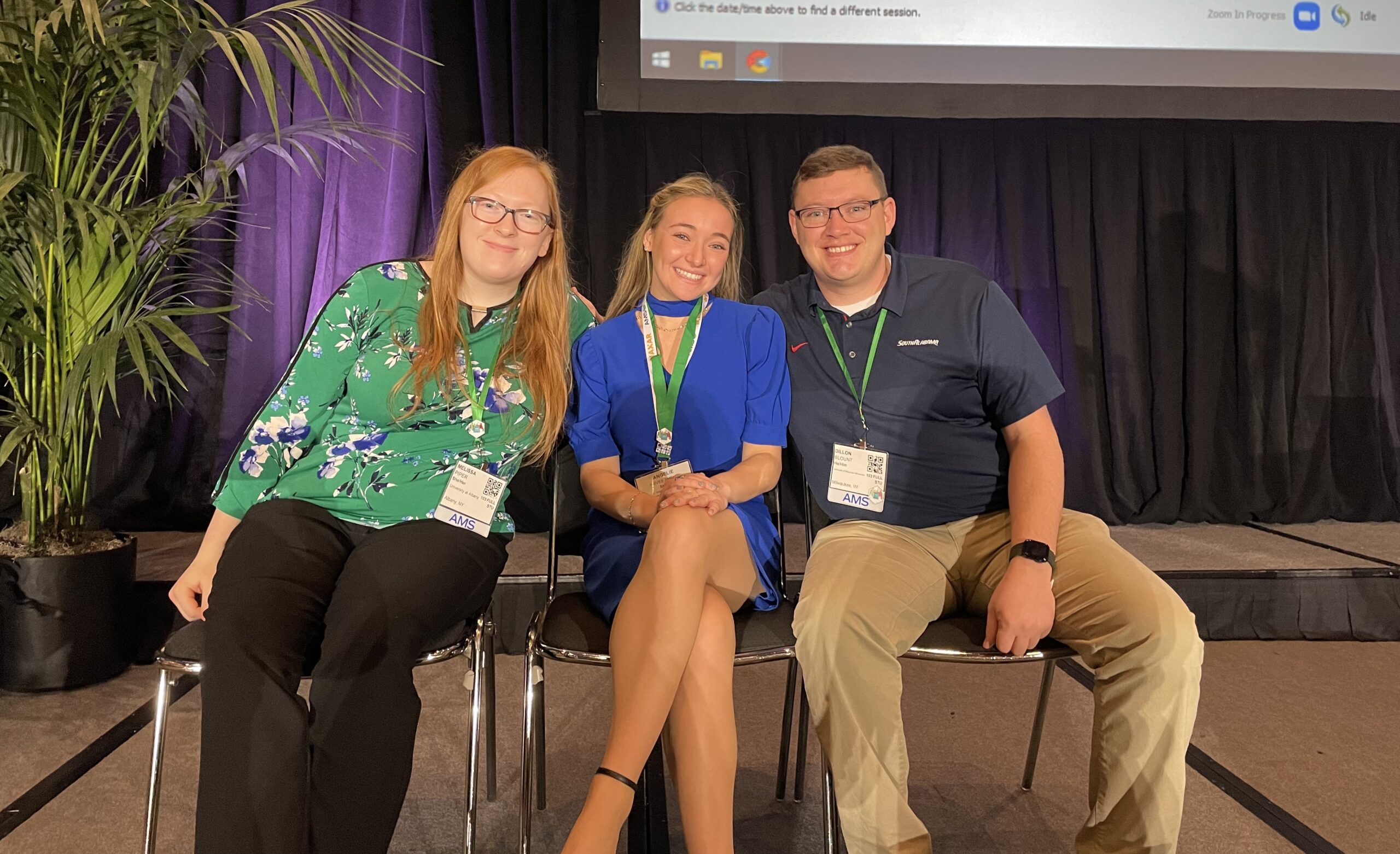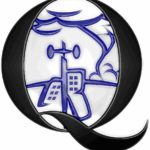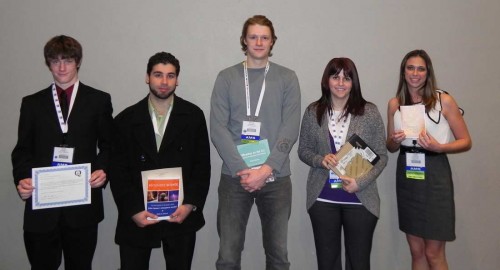The 23rd Annual AMS Student Conference, which takes place 27–28 January (immediately prior to the AMS 104th Annual Meeting in Baltimore), spotlights research by graduate and undergraduate students in the atmospheric and allied sciences, as well as offering networking and other career opportunities, presentations from leaders in the field, and the chance to hone important skills. We spoke with Conference Co-Chairs (pictured above, left to right) Melissa Piper of SUNY Albany, Angelie Nieves Jiménez of Colorado State University, and Dillon Blount of the University of Wisconsin-Milwaukee about what students will gain from the conference experience.
What’s behind this year’s Student Conference theme?
Melissa: This year’s Student Conference theme is “It’s Our Turn: Tackling Our Changing Environment.” We wanted to adapt the Annual Meeting theme (“Living in a Changing Environment”) to align with the rapid, multi-faceted changes students in the atmospheric sciences currently face. As students, our personal environments are constantly changing: we are going to school, moving for internships, and facing the unknowns of post-student life. On the flipside, our generation is entering adulthood in the face of a climate crisis. As we enter the workforce, we will be faced with developing solutions, conducting research, and adapting with our local communities to climate change. We hope that this year’s Student Conference can help prepare students to tackle these complex changes in all aspects of our lives.
What’s distinctive about the AMS 2024 Student Conference, and who should attend?
Melissa: The Student Conference is planned solely for students, by students from a variety of universities, backgrounds, and interests—so the conference is relevant to current students in the atmospheric sciences. There are professional development and networking sessions alongside research presentations constructed with students in mind (so no presentations that require you to have a PhD to understand!). Even better, the Student Conference Poster Session provides all students the opportunity to present their research at a reduced cost compared to the AMS Annual Meeting. A separate conference [also] gives students an opportunity to meet their peers from all around the world. This is especially important because we will all be each other’s colleagues in a few years!
While most tend to think of the Student Conference as being tailored to undergraduate students, we are making conscious strides in ensuring our conference is relevant to graduate students as well. We have sessions geared towards professional development, discovering lesser-known sub-fields in the atmospheric sciences, networking, jumping out of academia, and more!
Angelie: Additionally, the Career Fair on Saturday and Sunday nights is focused primarily providing students with information about internships and graduate school opportunities! We partner up with the Board of Early Career Professionals to bring professional development sessions for all stages.
The Student Conference takes place prior to the bigger AMS Annual Meeting, which can help students loosen up and prepare for the rest of the week and know what to expect. It also can serve as a trial of whether they wish to pursue the atmospheric sciences further.
Dillon: A conference geared towards students is a great way to get the students involved in the overall community of the American Meteorological Society. As students, we can often feel overwhelmed by the larger Annual Meeting and how to build a network throughout the week. This conference provides a great toolbox to use throughout the week to network and build community. This inclusion of students, and the resources gained at the Student Conference, allows students to help shape the future of the AMS.
What events at the conference are you most excited about?
Angelie: I am excited about the new Community Based Science Session which is inspired by what was previously known as the BRAID (Board on Representation, Accessibility, Inclusion, and Diversity) Session. This year we are focusing on presenting and highlighting the actions taken behind some of the amazing community initiatives.
Dillon: I am most excited about the Sunday keynote speakers! It is not often that students get the opportunity to hear from the top two leaders of the National Weather Service. Ken Graham and Michelle Mainelli’s leadership provides a great insight into what the future of that career field looks like. They are wonderful people, and I cannot wait to hear what they have to share!
Melissa: One of my favorite parts of the Student Conference is the Conversations with Professionals session. This year, we have an incredible lineup of 10 professionals from the private, public, and policy sectors for our students to have informal conversations with—including meteorologist-in-charge of the National Weather Service in Baltimore Mr. James Lee, director of the AMS Policy Program Dr. Paul Higgins, and broadcast meteorologist for WBAL-TV in Baltimore Ms. Ava Marie. It’s a fantastic networking experience!
In Short: Why Attend the AMS 2024 Student Conference?
| Angelie | Dillon | Melissa |
|---|---|---|
| “The 2023 AMS Student Conference provides a space for students to expand their network, advertise their work and build their confidence as they gain experience in the workforce.” | “The student conference provides students the opportunity to explore different careers and opportunities after school whether this includes graduate school or a job. There is a vast amount of experience and advice provided at this conference, from a variety of perspectives from early to late career professionals.” | “The Student Conference goes beyond research presentations and the exploration of different careers → it gives you the opportunity to build your toolbox on skills like networking, having a healthy mindset, and technical skills.” |
About the AMS Student Conference
The 23rd Annual AMS Student Conference will take place 27-28 January 2024, the weekend leading into the main AMS 104th Annual Meeting in Baltimore. The Student Conference provides opportunities for undergraduate and graduate students to broaden their horizons, cultivate new skills, hear from leaders in the weather, water, and climate enterprise, and network with fellow students and professionals. Attendees also have the opportunity to participate in workshops to help with their professional development, attend the Graduate School and Career Fair to help with planning the next step in their career, and gain valuable experience by presenting their work at the Student Conference Poster Session. Students can attend the conference in person in Baltimore as well as virtually. Learn more and view the program.



